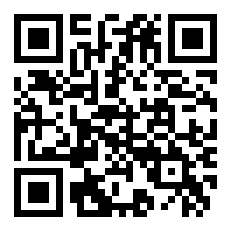Is Couching Rare in the Paediatric Age Group? A Report of Bilateral Couching in a Child
Paediatric Ophthamology and Strabismus
Abstract
Introduction: Couching is an ancient procedure for cataract surgery which unfortunately is still being practiced in many developing countries.1 There are several reports on couching in adults; however, literature is sparse on its occurrence in children.2,3
Case Report: A 10-year-old male presented to our unit with history of poor vision from childhood. He was seen at the age of 3 weeks, diagnosed with congenital cataract (presumed rubella) and scheduled for cataract surgery. The surgery could not be done because the patient had not complied with the requested paediatric evaluation. At the age of 16months, he presented again, however, surgery was not performed due to some logistics in the hospital. He subsequently had bilateral couching (each eye 2 weeks apart) at the age of 4 years, following a recommendation by his aunt. His mother reported some “visual improvement” after couching. On general physical examination, he was small for age, had dysmorphic features and a pansystolic murmur. Echocardiography revealed patent ductusarteriosus and atrial septal defect. Visual acuity was hand movement in both eyes. He had horizontal, pendular, nystagmus and microcornea. There was no corneal scar. He was aphakic in both eyes with secondary visual axis opacification. There were pigments in the vitreous with syneresis. He had pink discs with cup disc ratios of 0.3 and mild temporal pallor in both eyes. Intraocular pressures were 20mmHg and 23mmHg in right and left eyes respectively while the axial lengths were 22mm and 23mm in right and left eyes respectively. A clinical impression of bilateral pseudo-aphakia secondary to couching with severe amblyopia and background presumed congenital rubella syndrome was made. He underwent bilateral surgical capsulectomy with anterior vitrectomy and peripheral iridectomy. Thereafter, best corrected visual acuity was 6/60 in the right eye with +15.50 diopters sphere and hand movement in the left eye with +16.00 diopters sphere. Spectacles were dispensed and he is now on follow-up.
References
Mahmoud AO. Traditional operative couching is not a safe alternative procedure for cataract surgery in Northern Nigeria. Saudi Med J. 2005;8: 30–32.
Ademola-Popoola DS and Owoeye JF. Traditional couching for cataract treatment: a cause of visual impairment. West Afr J Med. 2004; 23(3): 208–210.
Onabolu O and Iwuora A. Experience with Extra-capsular Cataract Exraction and Intra-ocular Lens Implant in Children. West Afr J Med [Internet]. 2011;29(5). Available from: www.ajol.info/index. php/wajm/article/view/68250
Sheeladevi S et al, Global prevalence of childhood cataract: a systematic review. Eye (2016) 30, 1160–1169
Duke R et al. Using key informants to estimate prevalence of severe visual impairment and blindness in children in Cross River State, Nigeria. J AAPOS 2013; 17(4): 381-384.
CE et al. Couching in Nigeria: prevalence, risk factors and visual acuity outcomes. Ophthalmic Epidemiol. 2010;17(5):269- 275.
Isawumi MA, Kolawole OU and Hassan MB. Couching techniques for cataract treatment in Osogbo, South west Nigeria. Ghana Med J. 2013;47(2): 64–69.
Asuquo IM, Busuyi HM and Umar KO. The dangers of couching in southwest Nigeria. Malaysian J Med Sci. 2014; 21(5): 60–65.
Olusanya BA, Baiyeroju AM and Fajola AO. Visual recovery after cataract surgery in children. Nigerian Journal of Ophthalmology 2006; 14: 46–51
Yorston D, Wood M and Forster A. Results of cataract surgery in young children in East Africa. Br J Ophthalmol, 2001; 85: 267–271
Downloads
Published
How to Cite
Issue
Section
License
Copyright (c) 2023 Transactions of the Ophthalmological Society of Nigeria

This work is licensed under a Creative Commons Attribution-NonCommercial-NoDerivatives 4.0 International License.

















